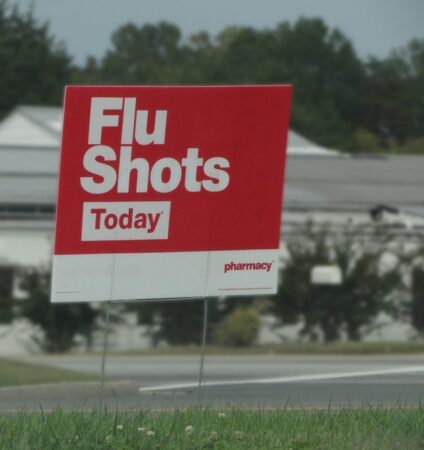 Fall is finally here, and with it comes the onset of flu season. The flu is a difficult illness for everyone, but for cancer patients, it can be devastating. It is especially challenging in this year that has already taxed everyone with the uncertainty of COVID-19. It is critical to recognize that as cancer patients, important healthcare preventative actions, like receiving a flu shot, should not be ignored. Healthcare providers continue to practice safety precautions during this pandemic, therefore getting a flu shot should not be an ill-advised health risk.
Fall is finally here, and with it comes the onset of flu season. The flu is a difficult illness for everyone, but for cancer patients, it can be devastating. It is especially challenging in this year that has already taxed everyone with the uncertainty of COVID-19. It is critical to recognize that as cancer patients, important healthcare preventative actions, like receiving a flu shot, should not be ignored. Healthcare providers continue to practice safety precautions during this pandemic, therefore getting a flu shot should not be an ill-advised health risk.
CDC Estimates
The Centers for Disease Control (CDC) estimates that flu has resulted in between 9.3 million and 49 million illnesses each year in the United States since 2010.1 Although there is no way to predict the severity and length of an individual flu season, it is important for GIST patients to receive their vaccinations as early as possible. Flu activity peaks between December and March in the United States. The CDC recommends that cancer patients as well as close family members be vaccinated by the end of October.
Always consult your physician before getting vaccinated. There may be certain individual medical contraindications to being vaccinated, and they can recommend a safe source where you can receive the vaccination.
Important information about the flu:
• The flu shot is a seasonal vaccine. Each year it is designed to combat strains of flu expected to cause illness in the current season.
• Being a cancer patient puts you at an increased risk of complications, which can include pneumonia, hospitalization, and even death.
• Choosing to get a flu shot is your best protection against the flu.
The CDC website is the authoritative source for information on the current 2020-2021 flu season, but as always, it is important for you to check with your individual healthcare provider for any restrictions or health concerns.
Information on the CDC site includes:
• A list of the viruses the 2020-2021 vaccines protect against
• Types of vaccines recommended for protection against these viruses
• Information on updates to the vaccines for this season
• New vaccines licensed for this season (More information about new vaccines available this year)
• Recommended vaccines for this season
• Extensive information about COVID-19 and seasonal flu
There is also helpful information on the site about availability of the vaccine, which may be affected because of the COVID-19 pandemic.
Vaccination timing for the 2020-2021 season according to the CDC:2
- Vaccine should be administered by the end of October 2020, but vaccination should continue to be offered as long as influenza viruses are circulating locally and unexpired vaccine is available.
- Vaccination too early in the season (e.g., July or August) may lead to suboptimal immunity later in the season, particularly among older adults.
- Children aged 6 months through 8 years who require 2 doses should receive their first dose as soon as possible after vaccine becomes available, and the second dose ≥4 weeks later.
Talk to your physician and make an appointment for your flu shot today!

Click this link for or more information on where you can get a flu vaccine.
To learn more about flu, visit Influenza (Flu).3
More information is available on the CDC website.
References
1. https://www.cdc.gov/flu/about/burden/index.htm
2. https://www.cdc.gov/flu/professionals/acip/summary/summary-recommendations.htm
3. https://www.cdc.gov/flu/season/faq-flu-season-2020-2021.htm




